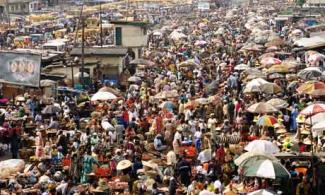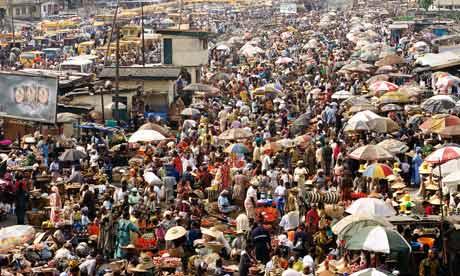
“We have about 70 million citizens of Nigeria who cannot read and write or who lack basic skills for modern living. That is a big challenge for any nation, and that is why we are trying to sensitise and mobilise all stakeholders, including government at all levels, federal, state and local, Non-Government Organisations and international development partners," he said.

Professor Abba Haladu, the Executive Secretary for the National Commission for Mass Literacy, Adult and Non-Formal Education (NMEC) has said about 70 million Nigerians cannot read or write.
He stated this in an interview with NAN in Kano on Friday.
According to Haladu, the commission is focusing on strategies to increase literacy level, as more than 38 per cent of Nigerians are illiterate.
His words: “The available statistics with us shows that 62 per cent of Nigerians are literate and 38 per cent are non-literate. The out-of-school children are 11 million, while the non-literate Nigerians, that is the youth and adults are about 60 million, so put together.
“We have about 70 million citizens of Nigeria who cannot read and write or who lack basic skills for modern living. That is a big challenge for any nation, and that is why we are trying to sensitise and mobilise all stakeholders, including government at all levels, federal, state and local, Non-Government Organisations and international development partners, so that together we should do the needful to ensure literacy is provided to this large number of Nigerian citizens, so we can have even development and ensure our people are well-equipped and empowered to face the challenge of becoming the third most populous country in the world in the next 32 years.’’
Highlighting the resources needed to provide literacy in the country, he continued: “This requires a lot of things in terms of planning, budgeting — that is, allocating the necessary resources, in terms of mobilisation and implementation of tangible programmes, that will lead to educating the people or making them literate and also ensuring they acquire the necessary skills.
“The programmes include for instance, basic literacy, where people learn to read and write equivalent to primary three, then post literacy were people continue and learn to the level equivalent to primary education and there after continue in education programmes for completion of post literacy.
"There are various programmes targeting youth, adults and out-of-school children, which are being implemented by state agencies for mass education, National Commission For Mass Literacy, National Commission For Nomadic Education and indeed other partners.
“What we are saying is that there is need for the resources to continue to implement these programmes, so that the reach out will be wide enough to cover everybody."